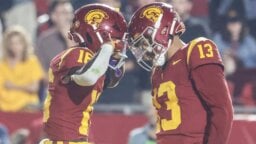In May 2023, Ed Sheeran emerged victorious in two back-to-back copyright infringement cases, filed nearly half a decade earlier, alleging that his 2014 hit Thinking Out Loud had ripped off Marvin Gaye’s 1973 classic track Let’s Get It On.
However, as it turned out, that wasn’t the end of the story for the closely-watched civil case, as the plaintiffs in both cases appealed the ruling. Last September, one of those plaintiffs – the estate of Ed Townsend, who co-wrote Gaye’s Let’s Get It On – withdrew their appeal. But the other plaintiff carried on.
That plaintiff is Structured Asset Sales LLC (SAS), a company founded and led by investment banker David Pullman, best known for inventing “Bowie bonds,” a type of asset-backed security that used royalties from David Bowie’s music sales and live performances as collateral.
Pullman owns a share of Townsend’s songwriter interest in Let’s Get It On, and on Wednesday (April 17), a panel of judges on the 2nd US Circuit Court of Appeals in New York questioned lawyers for SAS, as well as lawyers for Sheeran, to determine whether the US District Court’s ruling last year in favor of Sheeran had been in error.
In the jury trial last year, lawyers for Townsend’s estate played a video of a performance that Sheeran gave in which he played a medley that smoothly transitioned from Thinking Out Loud to Gaye’s Let’s Get It On. Lawyers for Townsend’s estate called it a “smoking gun,” proving Sheeran knew his song infringed on Gaye’s track from 1973.
However, in a colorful rebuttal, Sheeran said on the stand that he would have to be “quite an idiot to stand on a stage in front of 20,000 people” and draw attention to an act of plagiarism by playing the two songs together.
Sheeran’s lawyers argued that the two elements that allegedly copied Gaye’s Let’s Get It On – the song’s chord progression and harmonic rhythm – were so commonplace as to be non-copyrightable “building blocks” of pop music.
The jury in that trial agreed, and sided with Sheeran. Following that ruling, Judge Louis L. Stanton of the US District Court for the Southern District of New York – who presided over both cases against Sheeran – dismissed SAS’s case before it even made it before a jury.
“It is an unassailable reality that the chord progression and harmonic rhythm in Let’s Get It On are so commonplace, in isolation and in combination, that to protect their combination would give Let’s Get It On an impermissible monopoly over a basic musical building block,’ Judge Stanton wrote in his decision siding with Sheeran, which can be read in full here.
“Let’s Get It On‘s chord progression was used at least 29 times before appearing in Let’s Get It On and was in another 23 songs before Thinking Out Loud was released,” the judge added, echoing an argument that defense lawyers had made in the earlier jury trial.
In the hearing held on Wednesday (April 17), judges on the appellate court panel focused on the question of whether or not Judge Stanton had erred in ruling that the two similar elements in the two songs (chord progression and harmonic rhythm) were not enough to justify a claim of copyright infringement.
If “two elements isn’t enough,” US Circuit Judge Michael Park said to Sheeran’s attorney Donald Zakarin, as quoted by Reuters on Wednesday, then “how many do you need?”
Senior Circuit Judge Guido Calabresi appeared to object to the notion that the rule should involve any specific number of similarities, saying he could imagine a scenario where one lone element of a song is “so odd that you’d say this is genuinely original.”
“It is an unassailable reality that the chord progression and harmonic rhythm in Let’s Get It On are so commonplace, in isolation and in combination, that to protect their combination would give Let’s Get It On an impermissible monopoly over a basic musical building block.”
US District Court Judge Louis L. Stanton
The appellate court also looked at SAS’s argument that Judge Stanton incorrectly limited his analysis to the “deposit copy” of Let’s Get It On filed with the US Copyright Office, which SAS’s lawyers say doesn’t include elements of the song that Sheeran allegedly copied, Reuters reported.
If the appellate court sides with Sheeran, it will likely mean the end of the long-running dispute over Thinking Out Loud and Let’s Get It On.
If, however, the court sides with SAS, it will give the green light to a second lawsuit by SAS against Sheeran, which is currently on hold pending the appeals court’s decision.Music Business Worldwide





